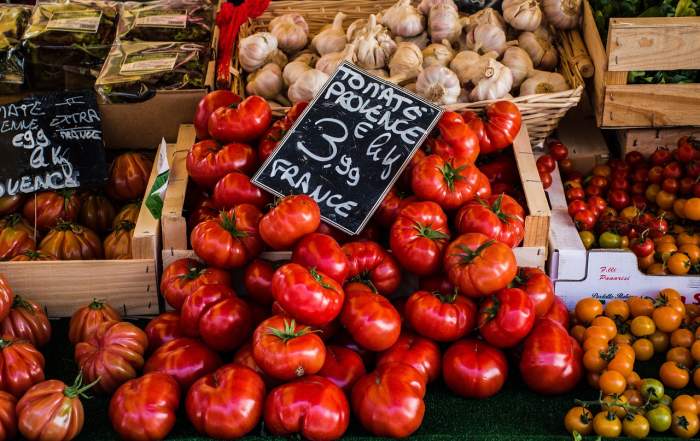The average American household spends over $7,700 on food annually. Your budget may be above or below that, depending on what state you live in and how big your household is.
In any case, you may be wondering where all your money goes. You take a look at your grocery spending, and a lightbulb goes off: this is where all your hard-earned cash is going!
While it’s necessary to eat, that doesn’t mean you have to blow all your paychecks on food. Here are some tips on grocery shopping on a budget.
Set up a Budget First
If you’re working with a limited amount of money, you’ll want to set a budget first before visiting the grocery store. When you walk into the store with no limit in mind, you’ll end up buying a bunch of unnecessary things, such as junk food or soda.
If you tell yourself that you only have $50 to spend on each trip, and you only get 1 trip a week, that can help you save better. You’ll think twice about reaching for those potato chips or that liter of soda.
With a weekly or monthly budget, it’ll also be easier to forecast how much you’ll spend on food, which can help with spending in other areas of life too. For example, you’ll be able to allocate more cash toward self-care activities if you restrict how much you spend on groceries.
Shop Based on What You Already Have
Make the most out of your previous grocery run and shop around that. For example, if you have some eggs, cheese, and butter, you’re already halfway to an omelette, frittata, or scramble. All you need to do is pick up some meat, which can also be used for another meal.
When you do this, you benefit in two ways. First, the things in your refrigerator and pantry won’t go bad. Second, you won’t have to pick up as many things at the supermarket since you already have ingredients on hand.
Shop Based on Sales
If you’re willing to be flexible with what you eat, shopping based on sales can save you a significant amount of money. For instance, beef is expensive, so you may want to avoid buying that when it’s regularly priced. But if your local grocery store has steaks on sale for 20% off this week, stock up!
If you have a freezer, that’s even better. Whatever you can’t eat quickly, just throw it in there. You can also do this with discount meats that expire the day you’re doing groceries but can’t get around to either cooking or eating.
Make a List Beforehand and Stick to It
The main reason why people end up spending so much at supermarkets is because they don’t go in with a plan. Plus, even if they have a grocery list, they don’t have the willpower to stick to it.
Before you make a trip out, follow the previous two tips: make a note of what ingredients you do have, put down what you need, and shop according to the current sales offers. When you have the strength to follow through with this, you’ll see the number at the cash register drop dramatically.
Don’t Shop While Hungry
If you love food, then shopping on an empty stomach is doomed to fail from the start. When you’re starving, everything on the shelves will look delicious, and you’ll want to grab it all.
Even if you’ve made a list beforehand and are determined to stick to it, your willpower can falter if you’re hungry. So before you step foot into the supermarket, make sure your stomach isn’t growling.
Shop Generic Brands
Nowadays, there are very little differences between name brands and generic ones. Once you’ve cooked all your food and presented it on the table, no one’s going to know or care which brand you used anyway.
It may be hard to let go of a trusted brand you’ve always used, but give generic ones a chance. You may be surprised at just how close to the brand name it comes. In fact, with a blind taste, you won’t be able to tell the difference between the two at all!
Clip Those Coupons
This may sound like something that only the elderly do, but clipping coupons can have a huge impact on how much you spend on groceries.
If you have some downtime at work, or you’re supervising the kids while they’re doing an activity, take the time to flip through some booklets. Or, better yet, do some Google searches for digital coupons.
Whatever method you prefer, it’s always worth taking a look on a regular basis. Manufacturers are always offering rebates, discounts, or even 2-for-1 deals. If you look in the right places and use some couponing tips, you’ll learn some fast and easy ways to save big.
Try Going Meatless
When you compare meat with vegetables, it can be quite expensive. For those of you who have a limited budget, you can still get full of nutrients by eating veggies and beans. For example, chickpeas, black beans, and spinach are filling and have lots of vitamins in them, plus they cost just a fraction.
If it feels too weird to go completely vegetarian, you can still get some meat, but either spread it out throughout your meals or treat yourself to a nice dinner once a week.
Grocery Shopping on a Budget Doesn’t Have to Be Hard
As you can see, grocery shopping on a budget isn’t as hard as you think it is. Sure, you’ll have to make some small sacrifices, but once you get used to it, it’ll become second nature. With all the money you’ll save in the long run, you’ll be able to have bigger budgets for other things in life.
If you want to learn about other ways you can cut down on costs, then take a look at our “save money” section.
